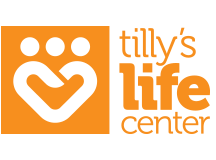
26 May Healthy Nighttime Habits for a Better Sleep Routine
When it comes to sleep, teens are typically more night owls than early birds. While for adults, getting up early might be commonplace after years of experience, forming healthy sleep habits for teens can be more difficult. These days, young people can feel pressure to stay up late as the beckons of technology and the demands of daily life create an unhelpful environment for getting to a state of relaxing shut-eye. Yet, the effects of lack of sleep on teenagers can impact mood, academic success, health, interpersonal relationships, and overall well-being. Forming healthy habits around sleep is essential for physical and mental health, so keep reading for our sleep tips for teens!
Schedule
Setting a firm routine can be the key to making sure teens feel sleepy at bedtime and wake up well-rested. Encourage your teen to set a hard deadline for when they will be in bed with the lights out each night and make sure that time is at least eight hours before they need to be awake in the morning. It might also be helpful to schedule in time to spend with a relaxing activity such as reading or listening to music before sleeping so that your teen finds themselves feeling calm before they hit the hay.
Routine
If your teens find themselves tired during the day but struggling to fall asleep at night, consider having them opt to avoid napping during the day. Remind your teen that they should do their best to go to sleep as soon as they feel sleepy, and not push through it until they get more energy, because falling asleep later can be tricky. Need to stay up late studying? Suggest they opt to go to sleep earlier and wake up fresh to continue working in the morning. It might take practice to get to a routine that works for them, but over time it should get easier!
Devices
One very important way to improve sleep quality is by powering down phones, laptops, and any other electronic devices with illuminated screens at least thirty minutes before bedtime. But, if devices are the culprit and your teen can’t seem to stay away, try encouraging them to use their technology to their advantage! Put phones in “night mode” to block blue light at sundown to help prevent disruption to melatonin production. Your teen can use other features like bedtime reminders or sleep specific notification silencers at their bedtime to help avoid distractions. Teens can also opt to use their phones for meditations, bedtime stories, music, or podcasts that they find relaxing or helpful for drifting off to sleep.
Atmosphere
Healthy sleep habits for teens can depend on their surroundings. Teens might find falling asleep difficult if they are stressed or uncomfortable in their space. Check in on how they are feeling about their room temperature, lighting, bedding, and surrounding noises to make sure they can relax comfortably and feel safe to sleep. Your teen might find their habits improve if they block out more light from windows in the morning, use a sound machine to mask strange noises at night, or adjust their blankets to avoid getting cold or overheating at night. Ideally, your teen should look forward to the peace and coziness of getting into bed each night.
Exercise
Looking for a way to improve physical and mental health while also increasing sleepiness at night? You guessed it, exercise! Encourage your teen to pursue activities during the day that keep them active. They are likely to find themselves with more energy when they need it and a higher level of positivity and feelings of well-being too. However, keep in mind that they should avoid hard workouts just before bed that might peak their energy levels at inconvenient times. Staying consistent with exercise at the proper times of day could also improve your teens mental health, allowing them to feel more relaxed when it’s time to fall asleep.
Meals
Yes, healthy sleep habits for teens include proper consumption of food and drinks! Eating regular meals on schedule can contribute to quality sleep. Be sure to have your teen avoid big meals right before bed. Try to schedule dinner time for at least two hours before your family’s bedtime. Remind your teen to eat well in the evening to avoid the need to snack late at night. If your teen is an avid coffee drinker, note that this could be impacting their ability to sleep. Let your teen know that they should avoid caffeine anytime in the afternoon or simply opt for decaffeinated beverages altogether. These drinks could be keeping them up at night from stimulation or even just the jitters!
Health
Sometimes, trouble sleeping can be a sign of physical or mental health concerns for teens. If your teen has tried a range of advice without success, consider speaking to a doctor or psychologist for advice. They might be able to offer you tailored insights into your teen’s situation or simply additional techniques to try. In the meantime, if you suspect that stress or anxiety might be keeping them awake, there are plenty of mental health resources for teens that can help them cope with the stressors in life and relax for a better night’s sleep.
At Tilly’s Life Center, we believe that daily habits and routines can be deeply intertwined in physical and mental health. Our mission is to provide mental health resources for teens that support their pursuits of happy, healthy, and fulfilling lives. To learn more about our curriculum, visit us at www.tillyslifecenter.org.


